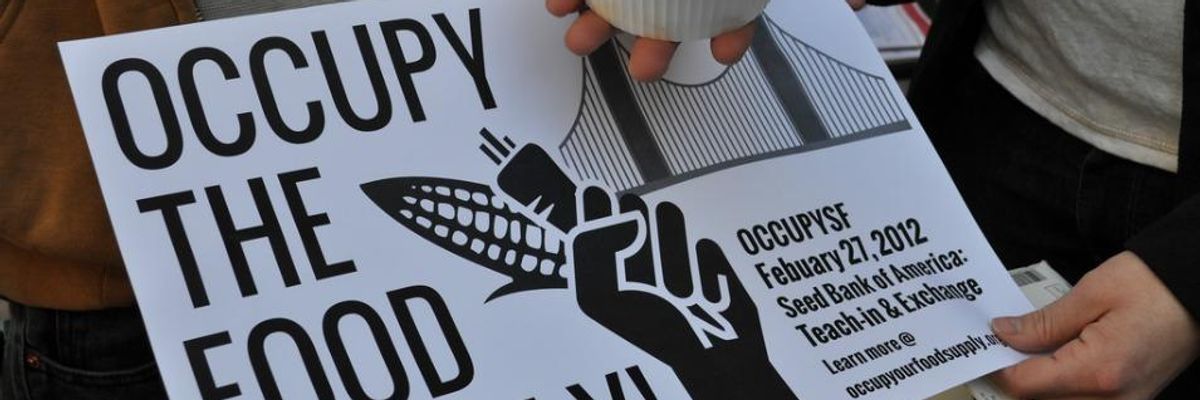German chemical giants Bayer AG and BASF SE are both considering takeovers of U.S. seed behemoth Monsanto, according to news reports on Thursday.
Of the potential Bayer takeover of Monsanto, valued at roughly $40 billion, Bloombergnoted that it "would create the world's largest supplier of seeds and farm chemicals."
As USA Todayreported, "A bid for Monsanto would be just the most recent in a wave of chemical and agribusiness consolidation."
Indeed, in February China National Chemical Corp. (ChemChina) announced it would acquire Swiss pesticide company Syngenta for $43 billion, while DuPont and Dow Chemical announced their merger last year.
According to advocacy group Food & Water Watch, such consolidation has far-reaching impacts, and is bad news for farmers and communities.
"A Bayer takeover of Monsanto would only be the latest in a string of high-profile seed and agrochemical mergers that are undermining the economic viability of family farms," said Wenonah Hauter, the organization's executive director. "Unchecked food and agribusiness monopolies pay farmers less, charge consumers more and reduce everyone's choices."
"The Department of Justice must block deals like the proposed ChemChina-Syngenta and Dow-DuPont mergers that already threaten to hyper-consolidate the biotech seed industry," she argued. "Doing so would also send a message that mega-mergers like the rumored Bayer-Monsanto deal will not be rubber stamped.
"The shocking consolidation in the biotech seed and agrochemical industry turns over the food system to a cabal of chemical companies that would make it even harder for farmers, consumers and communities to build a vibrant, sustainable food system," Hauter said.
The potential merger, Bloomberg reports, "would face a global antitrust review." The paper also quotes Erik Gordon, a professor at University of Michigan's Ross School of Business, who said that it may be slowed down by regulators who "are faced not with a decision about a single deal, but rather with a decision about the structural concentration of the whole industry."

